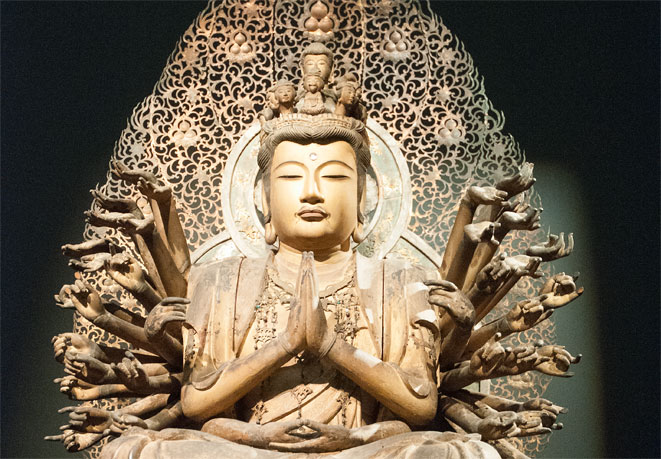Again and again we are asked to learn one of life’s clearest lessons: that to run from suffering—to harden our hearts, to turn away from pain—is to deny life and to live in fear. So, as difficult as it is to open our hearts toward suffering, doing so is the most direct path to transformation and liberation.
...
Facing the sorrow we meet in this life, we have a choice: Our hearts can close, our minds recoil, our bodies contract, and we can experience the heart that lives in a state of painful refusal. We can also dive deeply within ourselves to nurture the courage, balance, patience, and wisdom that enable us to care.
If we do so, we will find that compassion is not a state. It is a way of engaging with the fragile and unpredictable world. Its domain is not only the world of those you love and care for, but equally the world of those who threaten us, disturb us, and cause us harm. It is the world of the countless beings we never meet who are facing an unendurable life. The ultimate journey of a human being is to discover how much our hearts can encompass. Our capacity to cause suffering as well as to heal suffering live side by side within us. If we choose to develop the capacity to heal, which is the challenge of every human life, we will find our hearts can encompass a great deal, and we can learn to heal—rather than increase—the schisms that divide us from one another.
...
To cultivate the willingness to listen deeply to sorrow wherever we meet it is to take the first step on the journey of compassion. Our capacity to listen follows on the heels of this willingness. We may make heroic efforts in our lives to shield ourselves from the anguish that can surround us and live within us, but in truth a life of avoidance and defense is one of anxiety and painful separation.
True compassion is not forged at a distance from pain but in its fires. We do not always have a solution for suffering. We cannot always fix pain. However, we can find the commitment to stay connected and to listen deeply. Compassion does not always demand heroic acts or great words. In the times of darkest distress, what is most deeply needed is the fearless presence of a person who can be wholeheartedly receptive.
...
Awareness is born of intimacy. We can only fear and hate what we do not understand and what we perceive from a distance. We can only find compassion and freedom in intimacy. We can be afraid of intimacy with pain because we are afraid of helplessness; we fear that we don’t have the inner balance to embrace suffering without being overwhelmed. Yet each time we find the willingness to meet affliction, we discover we are not powerless. Awareness rescues us from helplessness, teaching us to be helpful through our kindness, patience, resilience, and courage.
https://www.lionsroar.com/she-who-he...-of-the-world/




 Reply With Quote
Reply With Quote




















